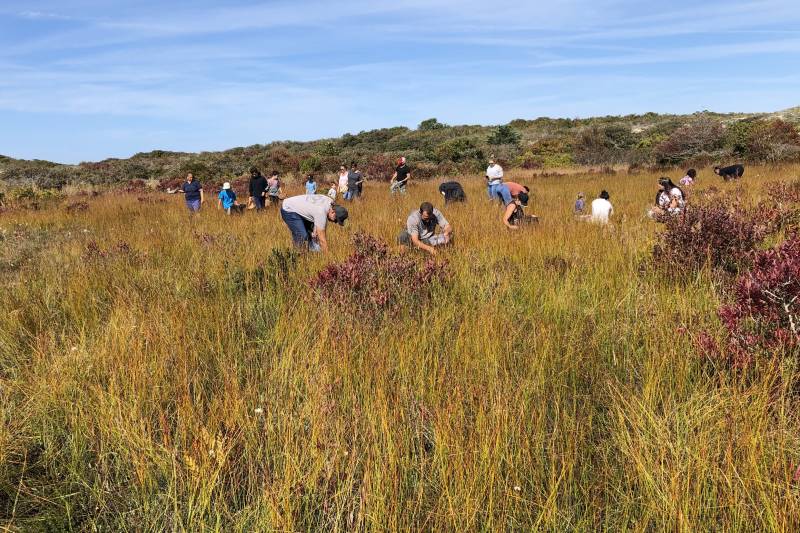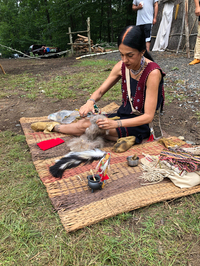Before what is now known as Thanksgiving, Indigenous peoples throughout North America gathered to give thanks. For the Wampanoags, the gathering took place not just annually, but 13 times throughout the lunar calendar year — a cycle known as the Thirteen Moons or Thirteen Thanksgivings.
Thanksgiving Is a Year-Round Practice of Giving Thanks

"Thanksgivings are a big part of our culture. Giving thanks is how we pray," said Kerri Helme, member of the Mashpee Wampanoag Tribe whose ancestors were the first to engage with Plymouth's Pilgrims when they arrived. These cyclical celebrations welcome the summer's first strawberries, the first green beans, the tapping of maple trees, the month of storytelling during the depths of winter, and more.
Schemitzun, also known as the Green Corn Festival, is a celebration of the corn harvest at the end of August.
"We view Green Corn as a homecoming. It's really an opportunity for everyone to see each other," said Helme, who celebrated Schemitzun at Mashantucket in southeastern Connecticut, home to the Mashantucket (Western) Pequot Tribal Nation. The two-day festival of dancing, chanting and feasting is one of the largest Indigenous gatherings, or powwows, in the Northeast.
In October, after the cornfields have browned and withered, Aquinnah Wampanoags on the island of Martha's Vineyard turn their attention to gathering wild cranberries during Cranberry Thanksgiving, a day, like Schemitzun, of ceremony, feasting and song.
Young and old fan out across tribal bogs to gather the tart, crimson berries. While the berries appear once a year on many American dinner tables, tribal elder Julianne Vanderhoop said the Aquinnah cherish cranberries throughout the winter as a source of nutrition.
"Cranberries were mixed into everything, from fritters to vegetables. They're dried and held in the root cellar over the winter. So this was a primary sustenance crop for us" said Vanderhoop.
So sacred is Cranberry Thanksgiving that Aquinnah children are officially given the day off from school to join the harvest.
Come November, when temperatures drop, the focus shifts from harvesting to hunting during Hunters Moon, the next celebration in the cycle.
"That moon is an important time for us," said Cassius Spears Jr., first councilman of the Narragansett Indian Tribe in Rhode Island.
"We talk to the four-leggeds and we ask for them to help us get through the winter and that's when we go out and we hunt. That's a time of thanks, a time of appreciation because [animals] are giving their lives so we can live," said Spears.

But in recent decades wildlife, habitat and the cycle of the Thirteen Moons themselves face threats, Spears said, from climate change.
"If the strawberries aren't growing, how are you going to have a Strawberry Thanksgiving? If the green corn is stunted because of drought and it's not ready for harvest, or the quantity isn't there at the end of the season, how are we able to do our ceremonies?" he asks.
In answer to his own questions, Spears said Indigenous peoples will find ways to endure, as they always have, just as day follows night.
"We give thanks every day. When the sun rises, or the sun sets, we give thanks. So it's something that we do. It's a part of who we are, which is far, far removed from American Thanksgiving and football and turkey and getting mad at your family," he said wryly.
Expressing gratitude 13 times a year, Spears concluded, not only shows respect for the earth, but keeps Indigenous peoples in close touch with the cycles of creation's blessings.
9(MDAxOTAwOTE4MDEyMTkxMDAzNjczZDljZA004))
